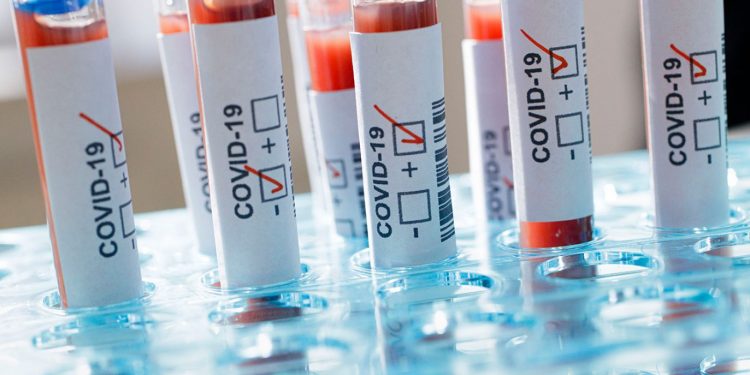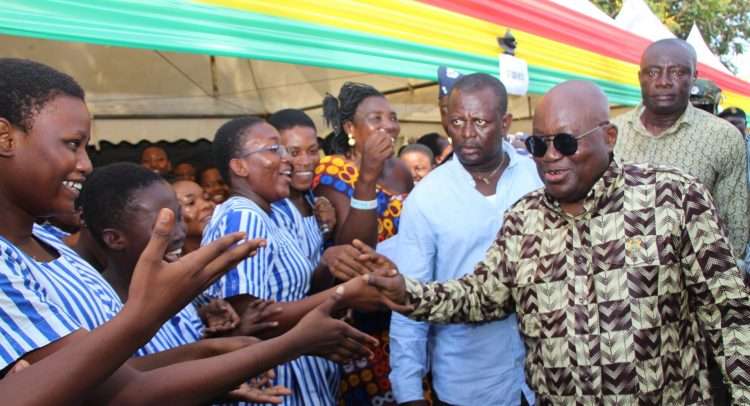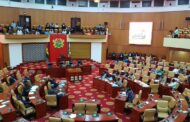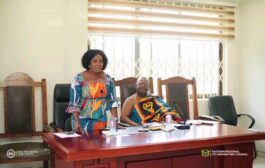As of Saturday, 20th June, the total number of positives, cumulatively, stands at fourteen thousand, and one hundred and fifty-four (14,154), out of the two hundred and seventy thousand, three hundred (270,300) tests conducted, President Nana Akufo-Addo has said.
He said in hospitals and isolation centers; Ghana currently has twenty-four (24) persons severely ill, six (6) persons critically ill, with four (4) persons on ventilators. Eighty-five (85) persons have, regrettably, died.
Speaking to the Nation on Sunday night on Number 12 of COVID-19, Nana Akufo-Addo said Under the revised policy, five thousand, nine hundred and twenty-five (5,925) persons have recovered and been discharged. This brings the total number of recoveries to ten thousand, four hundred and seventy-three (10,473) and the number of active cases is, thus, three thousand, five hundred, and ninety-six (3,596).
“This increased number of persons being discharged from our isolation and treatment centers brings in its wake yet another issue that we have to deal with – stigmatization. Stigmatization is adding further dimensions to the already difficult problem of the pandemic. Part of the reason for the spread of the virus is the reluctance of some persons to admit they have tested positive, and go into quarantine for fear of being stigmatized, and, in the process, continue to be agents of the spread of the virus. Persons, who test positive for the virus, once they recover, do not pose any danger whatsoever to anyone, because the scientists tell us that they can no longer spread the virus. As I have said before, there is nothing shameful about contracting the virus, and, consequently, we do not have to lose our sense of community because of this pandemic.”
“Our approach to dealing with the virus, as I have always said, will be informed by the evolving science and data. At the outset of the pandemic, the scientific community and the World Health Organisation (WHO), on 12th January 2020, recommended two main criteria for declaring someone who has tested positive as having recovered from the disease. The first is that you no longer have symptoms, and the second is that you are no longer capable of infecting others. Initially, the scientific thinking was that as long you continue to test positive, you are capable of infecting others. Hence, the requirement for the two consecutive, negative tests before you is declared as having recovered. This was the science that informed the guidelines that Ghana has, so far, followed. However, there is now new evidence which states that, after ten (10) to fourteen (14) days, a person, with no symptoms, is unlikely to transmit the virus to others, even if the person continues to test positive. It is on this basis that WHO has updated its guidelines, as published per its Clinical Management of COVID-19 Interim Guidance, of 27th May 2020, “as part of the clinical care pathway of a COVID-19 patient”. According to WHO, asymptomatic patients, i.e. those who have tested positive for the virus, but are not exhibiting any symptoms after fourteen (14) days, “are not likely to be infectious, and, therefore, are unlikely to be able to transmit the virus to another person”. After three (3) weeks of analyzing and studying this update and recommendation, and situating it in the Ghanaian context, in line with the admonition by WHO to the Member States, this new patient discharge/recovery policy has now been adopted by Ghana, as have some countries in the European Union, Singapore, India, Malaysia, Hong Kong, and in Dubai.”
Source: Mybrytfmonline/Kofi Atakora




















































